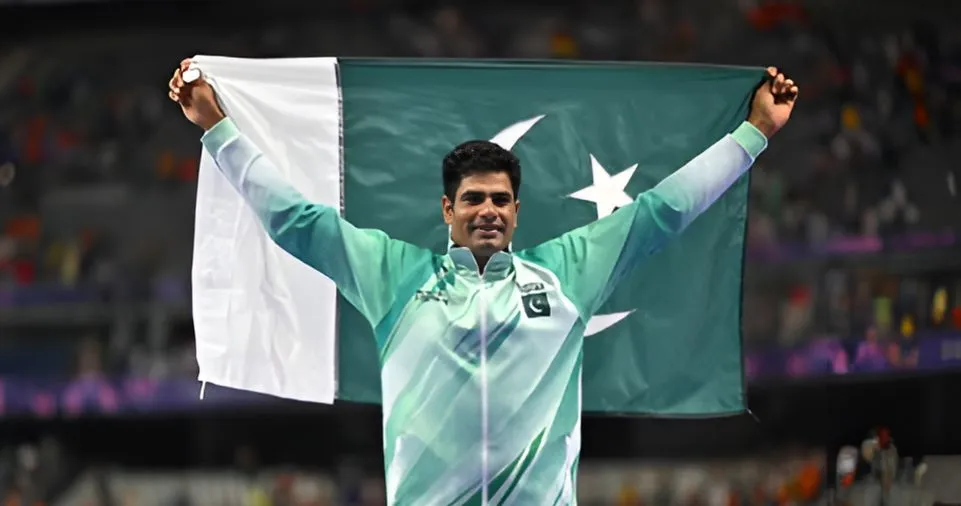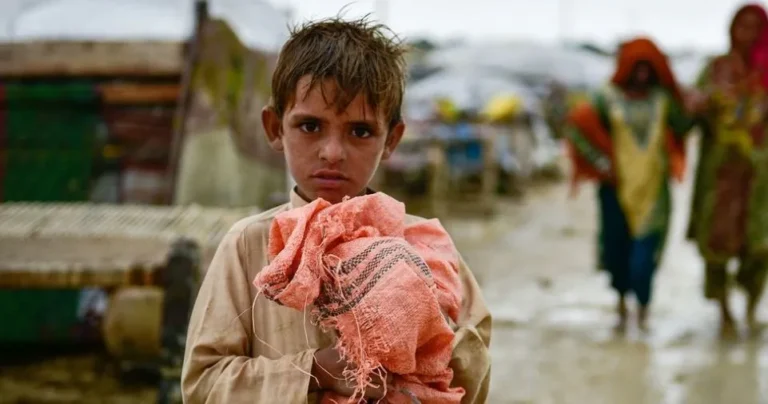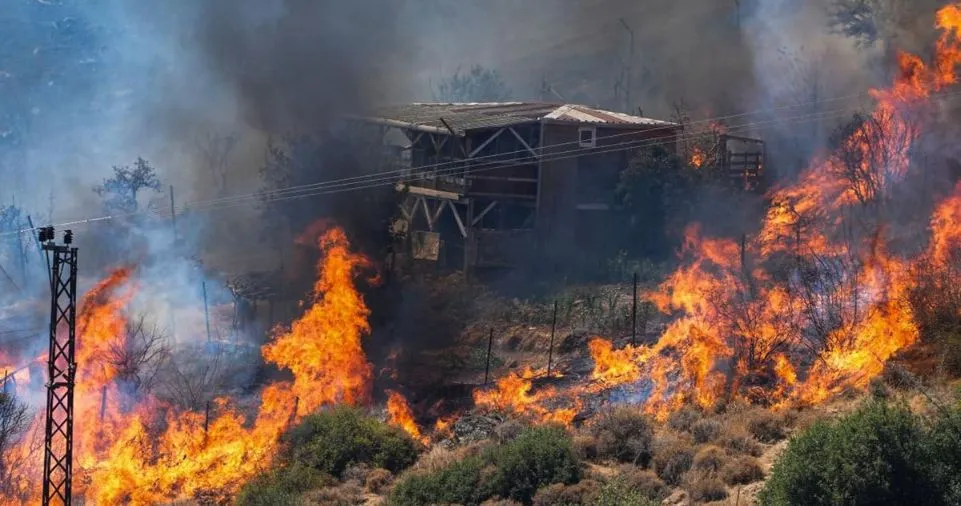The unexpected realisation that Pakistan’s 77-year journey mostly represents the fate of a drifting country moving in the wrong way from the start is typically the cause of this paradox. Apart from the dichotomy paradox, the collective wrong turn that has so far led to the wrong side of history is marked by bloody migration, an unjustifiable delay in the draughting of constitutions, the use of force to revoke a recently promulgated constitution, and the dissolution of the hard-won nation just 24 years after it was founded.
The unfinished business of nation-building, however, is already winding down to the point that the beloved idea of ideology-driven nationhood, laced with the intellectual feeling of oneness, is fading quickly. Due to the nation’s steadily declining human development metrics, a growing number of its citizens are considering leaving the promised land and relocating to distant parts of the world in the phantom of a chance to start again in unexplored areas.
Enviable means of sustenance being pursued outside national boundaries, the global perspective of fellow citizens is highly contaminated by an increasingly prevalent desire to reside permanently in every corner of the globe except their own country. This prevalent view of desertion is comparable, but only in seasonal terms, to the sight of earthly mass animal migration. Most intriguingly, the animals exhibit more patriotism than humans since they are rooted in their land and return there permanently after their long-term migration to a temporary home is no longer necessary.
The nation’s fear is spreading like wildfire, from a personal crush to a general epidemic that affects almost every demographic, especially the younger generation of over 242 million people. What is left for the younger generation in this area of the globe, save a glimmer of hope for a bright future, in a society that repeatedly fails its youth, mistreats its minorities, denigrates its women, and punishes its children for their innocence?
The future well-being of the young in this crisis-ridden nation is of utmost importance, as public mistrust in the country’s governmental institutions grows.
To regain the trust of the younger generation in their abilities to steer the system in the correct direction, the individuals in positions of authority and the general public must step up.
Depleting confidence
During this deep socioeconomic crisis that defines our country’s place in the world, it is the responsibility of society and policymakers to give the younger generation back the faith that they can steer the system in the right direction and to give them hope for a better future filled with equal opportunities, growth opportunities, and opportunities for positive change.
In order to rescue the young from their existential crises, a multifaceted plan of action must be developed and put into effect by the individuals in positions of authority and the general public. This may seem like a difficult assignment. Prioritising above all, though, is the need to investigate the problem underlying the current wave of pessimism, public criticism, and general dissatisfaction that is rapidly displacing the collective rationality with an eruption of agitation and suffering that is evident everywhere.
In particular, when it comes to youth—the era of one’s life filled with enthusiasm and boundless energy—it is always cause for great concern to witness this golden age of youth being transformed into one of instability and uncertainty, struggling with issues related to its own well-being as well as the general dysfunction of the government apparatus, as well as the inconsistent provision of public services and civic amenities with no obvious signs of improvement in sight.
The problems facing the younger generation are complex and go beyond only addressing the evils of unemployment and illiteracy. They have been used by previous governments for their own vested interests in addition to being denied their basic right to education and all other rights guaranteed by the Constitution. After being taken advantage of by the state apparatus on multiple occasions under the pretext of holy militarism and political awakening, the youth frequently find themselves at the bottom of the national policy priority ladder. They are also frequently abandoned by those who are meant to look out for them and safeguard their future, leaving them in the dark.
A never-ending cycle of chronic deprivation, characterised by various shortcomings like absolute poverty, ongoing economic hardship, limited employment opportunities, and generally lower life satisfaction, has befallen individuals with minimal education and low socioeconomic profiles for many generations. To make matters worse, the younger generation is given the incorrect impression by the widespread destruction of meritocracy in both the public education and work sectors.
On the surface, it seems simple to give the people affected by the crisis new hope and empower them to take charge in creating a better future. But a significant roadblock that can only be overcome by goal-driven activity as opposed to meaningless talk is their growing mistrust of the state and public institutions. Our region was once renowned for its progressive credentials and booming economy, but that is no longer the case. Truth be told, we now live in a nation that is fighting for its life, and those in positions of authority have a duty to act quickly to ensure that this doesn’t happen and that the people of this nation aren’t just a burden to the rest of the world.
Even though it would seem unlikely, there are other metrics than a regime’s strong economic performance that can be used to assess whether governance is successful or unsuccessful. On the practical side, there are a number of ways an efficient government may provide much-needed assistance to the people, earn back their trust, and restore their faith in the system despite the economic slowdown and budgetary crisis. In addition to the creation of jobs and sustainable economic growth, the standard parameters of good governance also include upholding the rule of law, the ability of the government to create, carry out, and accomplish policy goals, accountability, transparency, responsiveness, community engagement, respect for government institutions that control the social and economic environments, and unfettered access to information.
ALSO READ:
For the state to function properly, the previously listed characteristics—which outline the fundamental ways in which the government machinery operates—must be within its power. But the state-building process has suffered greatly as a result of the present governance crisis and the obvious incapacity of the succeeding administrations to carry out their fundamental duties, putting the populace in a condition of fear and hopelessness. In order to enhance the state’s ability to meet its responsibilities, the government and political players must explore every avenue for improving the delivery system.
While the governing class bears the primary blame for the country’s underperforming governance system, civil society and the intelligentsia cannot be absolved of their primary duty for failing to rise to the occasion and improve the lives of the nation’s young. The young people are exploited as feedstock to support the state’s continuously changing narrative whenever the necessity arises.
The traditional definition of good governance includes upholding the rule of law, the government’s ability to create, carry out, and accomplish its policy objectives, accountability, and transparency. It also includes sustainable economic development and job creation.
In the current situation, which is rife with hopelessness and blatant desolation, the literati are also equally to blame, not to mention the group of intellectuals, opinion leaders, poets, writers, media professionals, and filmmakers who have utterly failed to call attention to the general pessimism that is now deeply ingrained in the national consciousness. A persistent endeavour has been made in the neighbouring country to enhance the nation’s self-awareness, boost its sense of patriotism, and boost national morale. This has been particularly evident in the form of films and television series, which are intentionally created to bring the youth to the forefront of positive change, draw their interest in sports, allow them to represent their country, and fly the flag in international competitions. Pakistan has also undertaken intermittent efforts of this kind. Even yet, despite films being one of the best mediums for enlightenment, public education, and general awareness, their potential to impact much-needed change has never been completely realised.
Another reason for the general pessimism and despair among the populace is a lack of a vision. Not too many years ago, the strength of a uniting vision drove almost four million Muslims in India to physically cross the River of Blood in search of a better future in their own nation. In a word, it is a serious vision loss that hinders our capacity to view Pakistan, the one bright light in the country, even if the current sadness and darkness engulfing the country cannot overwhelm the heartbreaking story of the bloody exodus of 1947.

This too will pass.
This too will pass. But the lack of a common understanding of an uplifting, unifying vision that raises the spirits of a nation in crisis is largely due to the collective failure of the intelligentsia, civil society, clergy, the media, the powers that be, and the political leadership, especially of the current dispensation.
British economist E.F. Schumacher, a native of Germany and the author of Small is Beautiful, once said, “The art of living is always to make a good thing out of a bad thing.” The country’s existence has continued against all obstacles. Collectively, there is much more that we can do to inspire optimism and restore trust in the future among young people and the wider public. To uplift the nation’s spirit and demonstrate to the local audience that there is still hope during difficult times, all creative minds should use their fullest potential to produce moving content rather than providing a means of escape, as many thought leaders are doing.
It is appropriate to consider the sacrifices made by those who battled for Pakistan’s independence and to take stock of the nation’s inability to develop into the welfare state that its founding fathers had in mind as it marks the end of its 77-year journey. It is possible to characterise Pakistan as an unrealised potential rather than a lost utopia. With the support of visionary leadership, a well-defined development roadmap, and an unwavering commitment to putting aside our inflated egos and biases for the greater good of the nation, we as a nation must return to the country’s founding principles and put its house in order to reemerge as a progressive nation.
There is no nation that can progress at the cost of its youth. Numerous countries have successfully used their youthful population into a catalyst for economic expansion and technological advancement. Likewise, our fundamental duty is to make significant investments in our youth, producing excellent human capital and halting the brain drain by providing them with opportunities that are tailored to their abilities and goals for the future. Our youth need a reformer like Sir Syed Ahmed Khan to guide them along the road of enlightenment, along with the most motivating role models in STEM (Science, Technology, Engineering, and Mathematics) disciplines, in lieu of rabble-rousers and instigators. Ignorance is almost criminal in a knowledge-based economy. Allowing our young to pursue entrepreneurship and business, get a top-notch education, become proficient in contemporary technology, and receive comprehensive life training are all important.
Pakistan needs new blood: individuals who can think outside the box, develop creative ways to replace traditional techniques, enhance the value of already created works, capitalise on the AI (artificial intelligence) revolution, and inevitably become a part of a society that is socially conscious. Our goal should be to raise aspirational youth who can sketch the most ambitious roadmap with future checkpoints and who dare to dream of reaching the stars, visiting the Moon, Mars and even farther. Nothing will ever match the many innocent but lofty dreams conceived up by a youthful brain day in and day out, from the 2040 Asian Games in Lahore to the 2048 Olympics in Karachi, and from receiving the nation’s third Nobel Prize to running a Fortune 500 company.
This happened in the middle of the 1930s when Quaid-i-Azam Muhammad Ali Jinnah was present when a 14-year-old boy who was a gifted Urdu poet, a fiery orator, and one of the Pakistan Movement’s youngest freedom activists stood up on stage and chanted the movement’s catchphrase, “Lay ke rahain ge Pakistan, butt ke rahay ga Hindustan.”
It was a wonderfully alliterative, semantically reinforcing, and equally impassioned couplet full of youthful daring that took the audience—including Quaid-i-Azam himself—by surprise and served as a source of encouragement for the Muslims of British India. Written and recited by Kaif Banarsi, a young poet and ardent independence activist who moved to Pakistan with all of his heart, mind, and soul after independence, his rhyming lines effectively summed up the common theme and the intended conclusion of a protracted but genuinely political freedom struggle. They also served as a focal point and an ideal means of verbalising the general sentiment towards freedom that was prevalent at the time, simultaneously criticising both Hindu hegemony and British colonialism.
The current national narrative oscillates between a transactional loyalty to the motherland and an undying love of country with no strings attached. Buried in the depths of mass ignorance, Banarsi’s spirit of unconditional devotion to an envisioned country that was yet to emerge on the map of the world now stands in marked contrast with a rapidly subduing patriotic fervour. A drastic test of allegiance facing the country may be distinguished from a magnificent escape from the daunting issues it faces. Whatever the case, it is imperative that we instill in our people the fighting spirit of the former All-India Muslim League, since only individuals such as Kaif Banarsi, a young man filled with energy and passion, can truly take up the cause of saving our nation, rather than establishing a new one.







